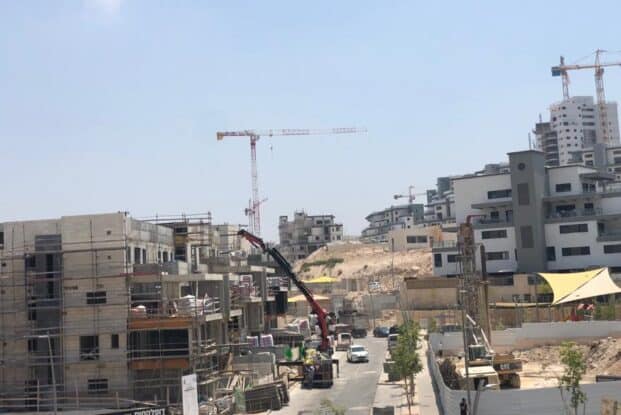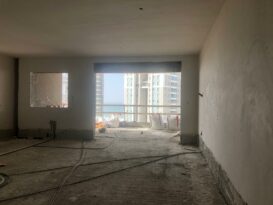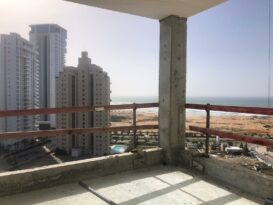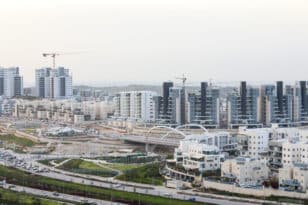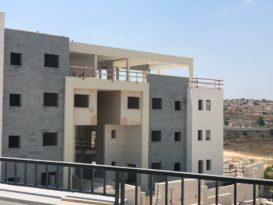Purchasers of new apartments in Israel, directly from developers, could find themselves paying a significantly higher price than they’d agreed upon when they initially closed the deal. The reason for this comes down to fluctuations in the residential construction cost index, published monthly by Israel’s Central Bureau of Statistics (CBS), which estimates changes in construction inputs. When new apartments in Israel are purchased from a developer, payments are usually linked to this index until the day of occupancy, which can lead to an increase in the apartment’s final price. Israel’s tax laws can also be unfavorable to an owner whose apartment value increases as a result of a change in this index.
Out of all the statistics that relate to the Israel real estate industry, the housing price index is indisputably the one that attracts the most interest from the Israeli public. Residential real estate prices, which have risen more than 100% in the past decade, have become one of the most popular topics discussed around the dinner table, alongside politics and sports. Other popular topics are data on new construction starts, and the number of new apartments in Israel that are purchased each month, both frequently quoted in the financial media.
Nevertheless, CBS publishes another monthly index that, unjustifiably, receives relatively little interest: The Construction Cost Index (or Building Cost Index), whose purpose is to estimate changes in residential construction costs in Israel. The index is a weighted average of the change in the two main components of construction, namely materials (e.g. cement, iron, etc.), and labor (i.e. construction workers’ wages).
Construction Cost Index must not be overlooked when purchasing new apartments in Israel
Some people view the index as a professional index intended primarily for the business sector, especially for developers, who are most affected by changes in construction costs and who consult the index before planning their next steps. However, this is an extremely important index for new apartment buyers too, especially when the unit is purchased long before the actual occupancy (which in Israel is called ‘buying on paper’, or “off-plan”). This is because, in almost all purchase contracts, payments to the developer are directly linked to the Construction Input Index.
Let’s take, for example, an apartment that was purchased from a contractor for NIS 3 million three years before occupancy. Let’s assume that according to the terms of the agreement, the buyer was required to pay a down payment of 20% of the price at the time of signing, with the rest of the payments to be spread out over the years as the apartment is being built. This means that the balance of payment, which is 80% of the price of the apartment, is linked to the construction cost index over the course of three years from the day the agreement was signed. In a realistic scenario, in which there is an average annual increase of 2% in construction inputs, the buyer will have to pay an additional NIS 100,000, making the final price of the apartment NIS 3.1 million.
At the beginning of this past decade, from 2010 to 2012, the annual increase in the construction input price index fluctuated between 3% and 4%. After that, between 2013 and 2019, the annual increase was more moderate and fluctuated between 1% and 2%.

Have construction costs in Israel been affected by Covid-19?
In February and March of this year, when COVID-19 began spreading from China to the rest of the world, experts warned that there might be a sharp rise in the Construction Cost Index that would directly impact the cost of building new apartments in Israel. They claimed that there could be a disruption in the supply of construction materials from China, which is considered the main supplier of cladding and floor tiles for the Israeli market. However, as of today, this concern has been dispelled and at the moment, it seems that even in 2020 the index is expected to have a relatively moderate increase.
Tax Implications of Construction Cost Index
It is important to note that increases in construction costs are not recognized for tax purposes. So, for example, if the same apartment that was purchased for NIS 3 million, whose actual price was NIS 3.1 million, is sold after a few years for NIS 3.3 million, the amount that the tax authorities will demand in Capital Gains Tax (the tax on the amount an asset has appreciated), will be NIS 300,000 and not NIS 200,000.
Many people criticize this policy and are calling upon the tax authorities to modify it. They consider it to be a “distortion”, but nonetheless, this is the current policy. Therefore, buyers of new homes in Israel who know in advance that they are planning to sell their property within a few years should take into consideration that they will need to pay this additional payment, as well as the tax on it, should they decide to resell the apartment that they bought “on paper”.
